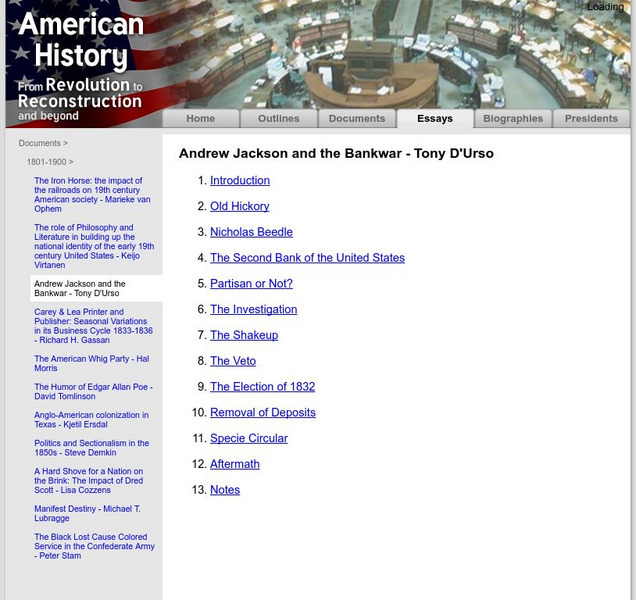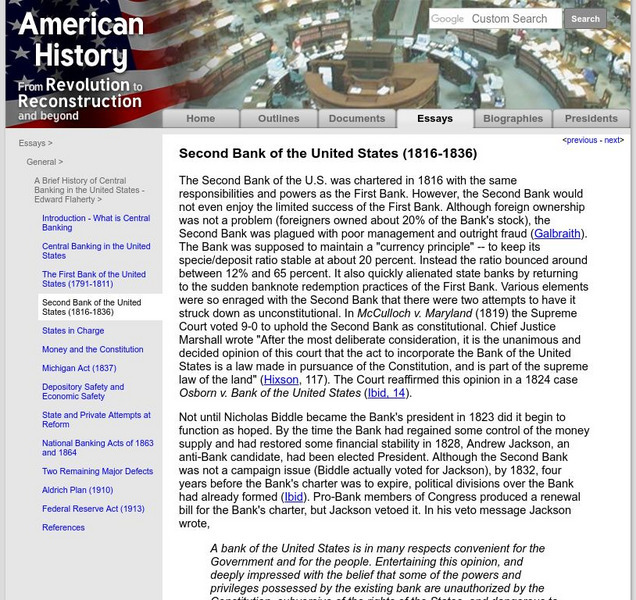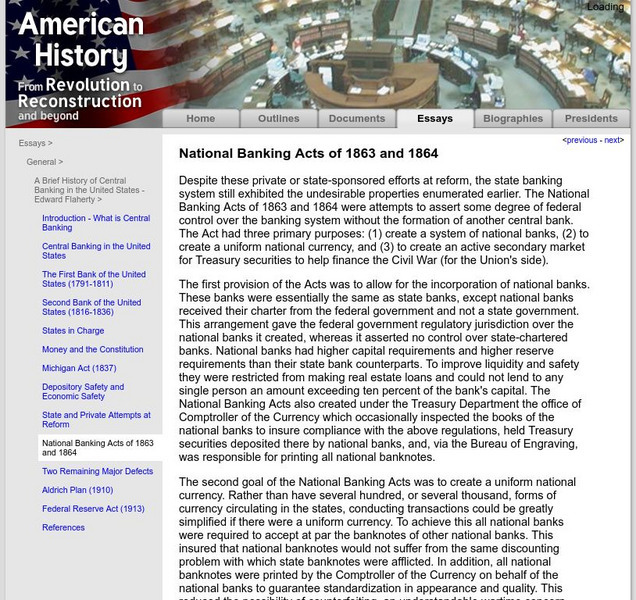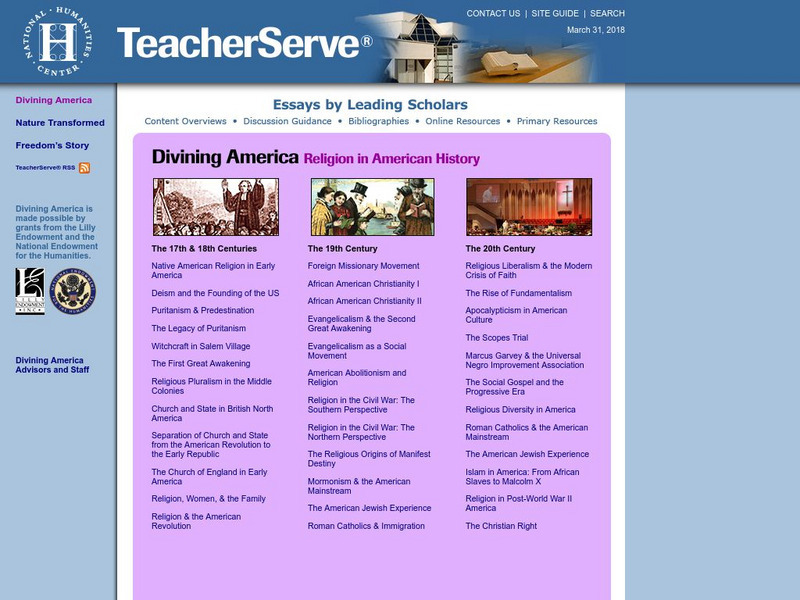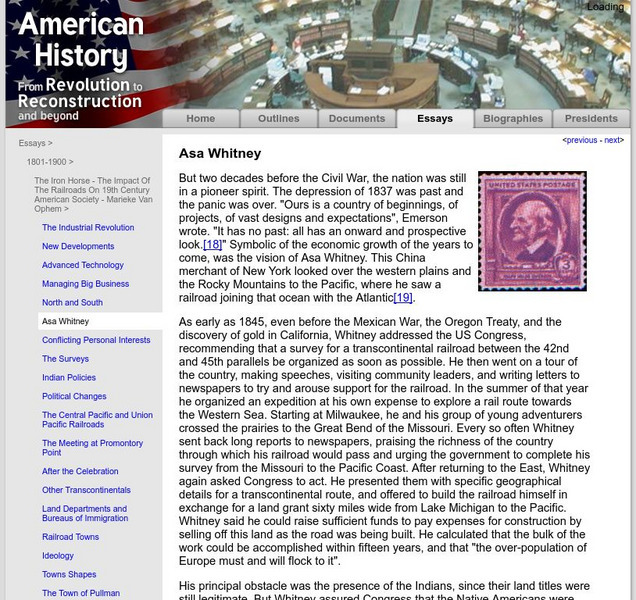Hi, what do you want to do?
Curated OER
Wartime and the Bill of Rights: The Korematsu Case (Lesson 2)
Twelfth graders review how the government and Bill of Rights came into effect. Using primary source documents, they discuss if Japanese rights were violated when they were placed in internment camps after the bombing of Pearl Harbor. ...
Curated OER
Fertilizers, Pesticides and Human Health- American Lessons
Students explore migration and why people move. They explore the movement of native populations. Students explore the economy as an factor in migration. They discuss the exploitation of the migrant worker.
Curated OER
VA Statute for Religious Freedom, II. Matching Activity
Students read and analyze primary source documents. In this matching lesson, students read sections of the Virginia Statute for Religious Freedom. Students match the document sections with paraphrased sections and discuss the accuracy of...
Curated OER
Lesson 5- Robert Rauschenberg: Reinventing Art
Students examine how Robert Rauschenberg influenced popular art and how art is influenced by politics, social and cultural messages. They design a new art movement and create art that is indicative of that movement.
Curated OER
Transportation and Communication Timeline
Students discuss the growth of transportation and communication technology since 1500 C.E. Individually or in groups, they research lists of developments in the two areas. Finally, students create timelines indicating the development...
Curated OER
The Student Newspaper on World War I
Young scholars explore WW I through the publication of a completely student-compiled newspaper.
Curated OER
Prune Boom
Students explore the process of harvesting and canning prunes. They discover the benefits of prunes to the Santa Clara Valley. Students investigate prunes at designated websites.
Curated OER
Understanding the Importance of the Declaration of Independence
Eighth graders examine the importance of the Declaration of Independence
by using a variety of research sources and computer technology to obtain information. They internalize the thoughts, actions, and motives of the signers of the...
Curated OER
Social Studies: Ramadan Observance
Students discuss Ramadan and the practice of fasting. Working in groups, they visit Websites and complete worksheets about the Muslim holiday. Students write letters role-playing as someone unfamiliar with a celebration and then write...
Curated OER
Words and Pictures Connect Nature and People: The American Conservation Movement
Students research some of the men and women who help to raise the environmental consciousness of the American people through their writings and drawings. They write a persuasive piece about an outdoor place which will connect their...
Curated OER
The Unseen Army: Conscientious Objectors During World War II
Learners study World War II and why it was called "the Good War". For this World War II lesson students identify the different kinds of conscientious objectors.
Curated OER
The Songcatcher
Students read Sharyn McCrumb's and Maggie Greenwald's versions of "Songcatcher" and use them as a springboard to explore the heritage and traditions of Appalachian folk music. They review Internet sources, conduct research and write...
Curated OER
A Flag for Mars
Young scholars investigate the historical use of flags on Earth, debate ownership issues for interplanetary exploration, and design a flag for Mars. The implication of placing a flag at a location forms the focus of the lesson.
University of Groningen
American History: Essays: Andrew Jackson and the Bankwar
This site contains an index of several articles pertaining to Andrew Jackson and his dealings with the Second Bank of the United States and his fiscal policies.
University of Groningen
American History: Essays: Second Bank of the United States
This resource provides a short description of the Second Bank of the United States. It contains a part of President Andrew Jackson's veto of the renewal bill for the Bank's charter.
University of Groningen
American History: Essays: National Bank Acts of 1863 and 1864
This essay describes the purposes and effects of the National Bank Acts of 1863 and 1864.
University of Groningen
American History: Essays: Andrew Jackson and the Bankwar: The Investigation
Discusses the investigation that Andrew Jackson launched into the Second Bank of the United States after suggestions that it was meddling in politics, and Nicholas Biddle's response. Jackson took the issue to Congress, asking them to...
Gilder Lehrman Institute of American History
Gilder Lehrman Institute: History by Era: The Age of Jackson
[Free Registration/Login Required] Read about the growth of the United States in population, economy, territory during the Age of Jackson. Named after the dynamic president, Andrew Jackson, the age encompassed much more than Jackson's...
National Humanities Center
National Humanities Center: Teacher Serve: Divining America: Religion in American History
A collection of scholarly essays consisting of instructional guides accompanied by commentary. Designed to help teachers of American history bring students to a greater understanding of the role religion has played in the development of...
University of Groningen
American History: Essays: The Iron Horse: Main Events of the Twentieth Century
This last section of an extensive essay about the railroad in United States history discusses the role of the railroad in the 20th century.
University of Groningen
American History: Essays: The Iron Horse: The Interstate Commerce Act
From a lengthy essay on the history of the railroad in the United States. This section describes The Interstate Commerce Act that passed in 1887. Its purpose was to regulate railroad rates across states, and it mandated the formation of...
University of Groningen
American History: Essays: The Iron Horse: Advanced Technology
From a lengthy essay on the history of the railroad in the United States. This section describes the debate over the construction of railroads, the competition between canals and railroads, and the companies that were building rail...
University of Groningen
American History: Essays: The Iron Horse: Managing Big Business
From a lengthy essay on the history of the railroad in the United States. This section describes how, as railroads grew in size, they needed to be managed by corporations due to their increasing complexity and the size of their...
University of Groningen
American History: Essays: The Iron Horse: Asa Whitney
From a lengthy essay on the history of the railroad in the United States. This section describes what Asa Whitney did to promote the idea of a transcontinental railroad in the North. His efforts provoked the South into campaigning for...


















